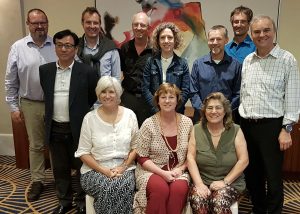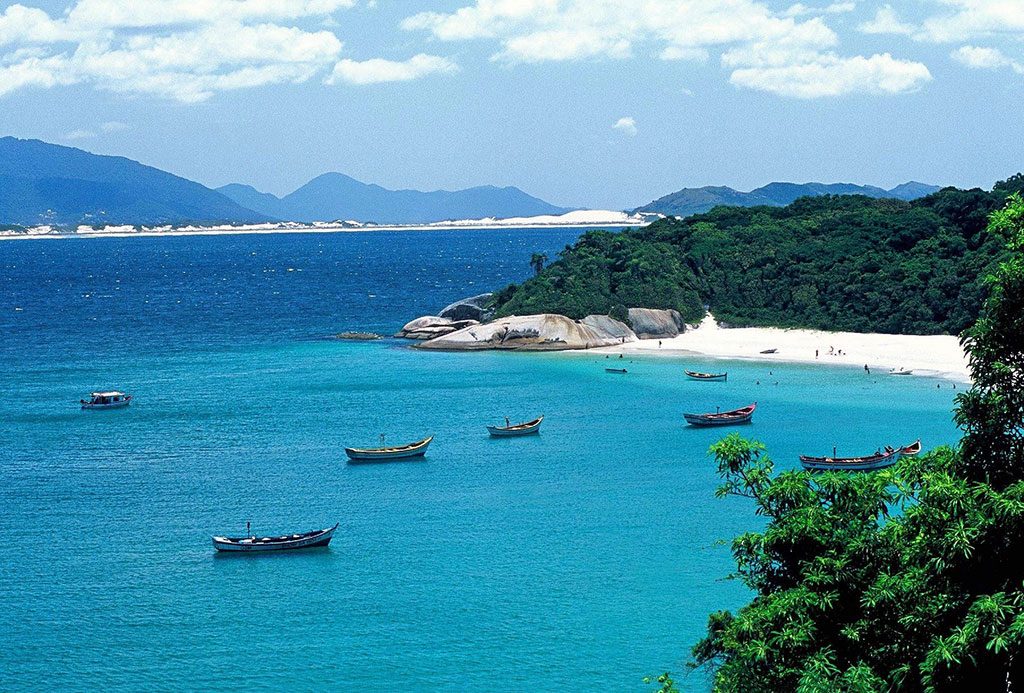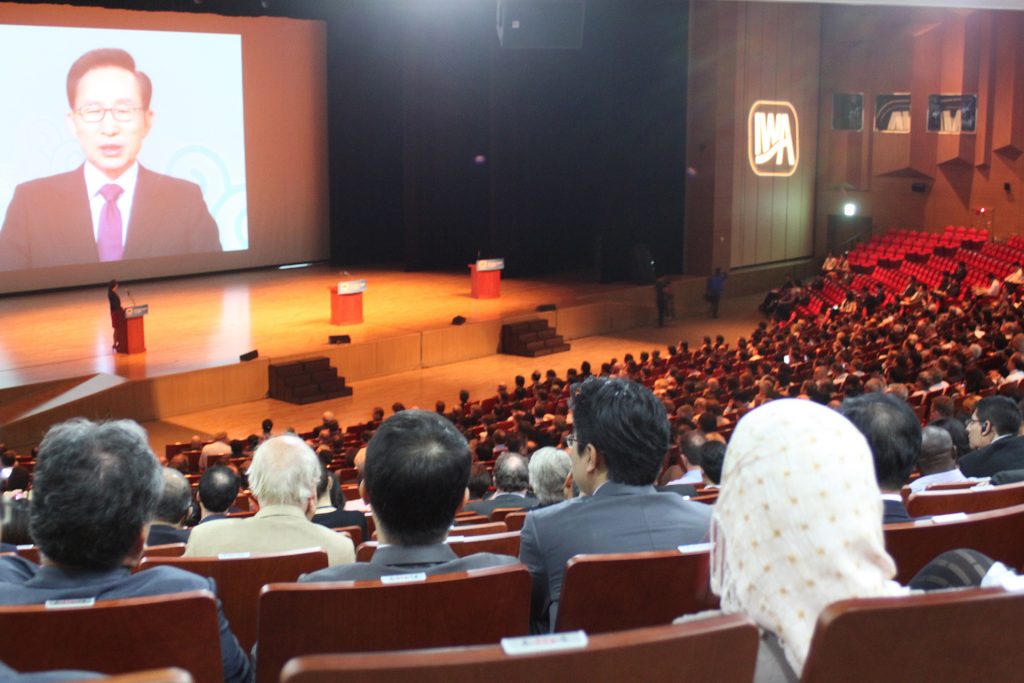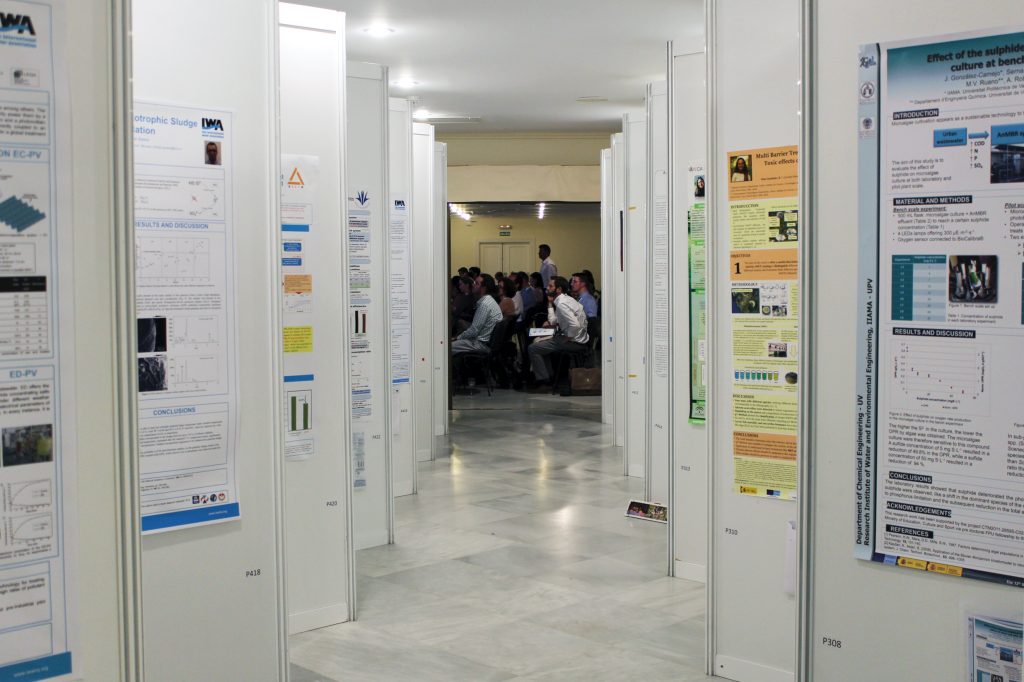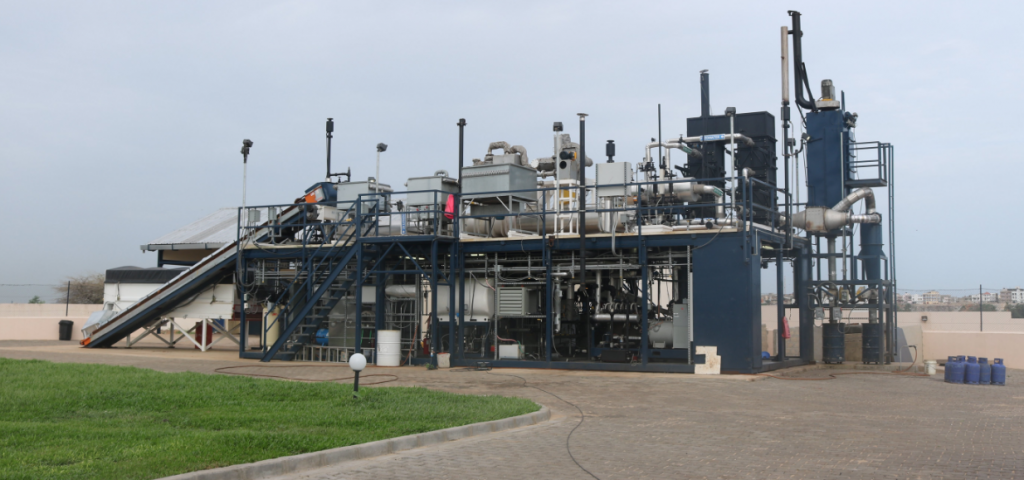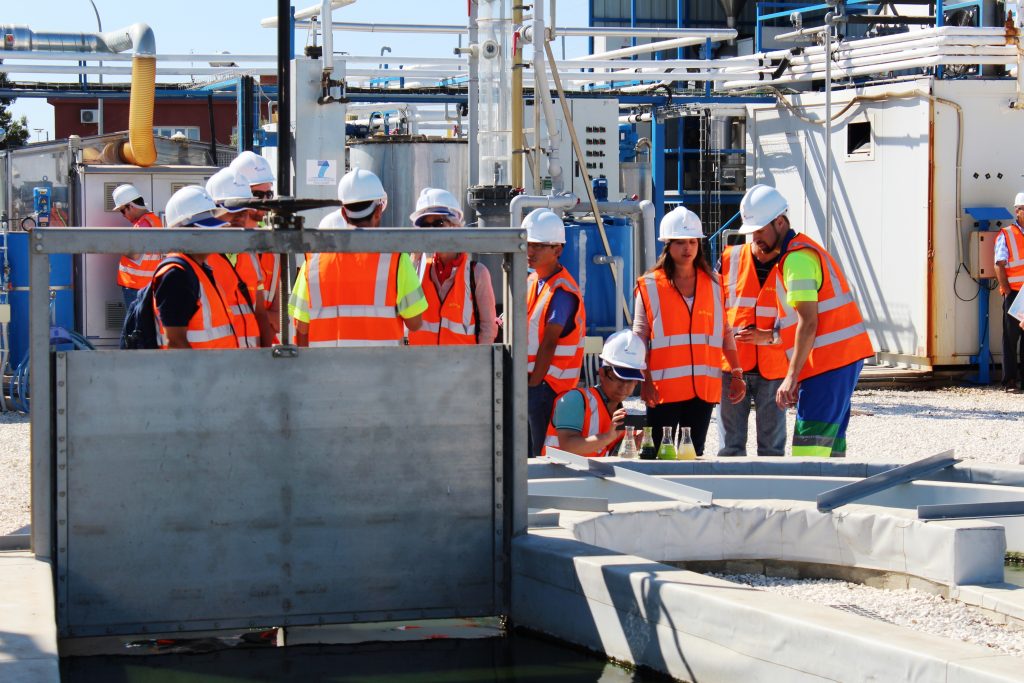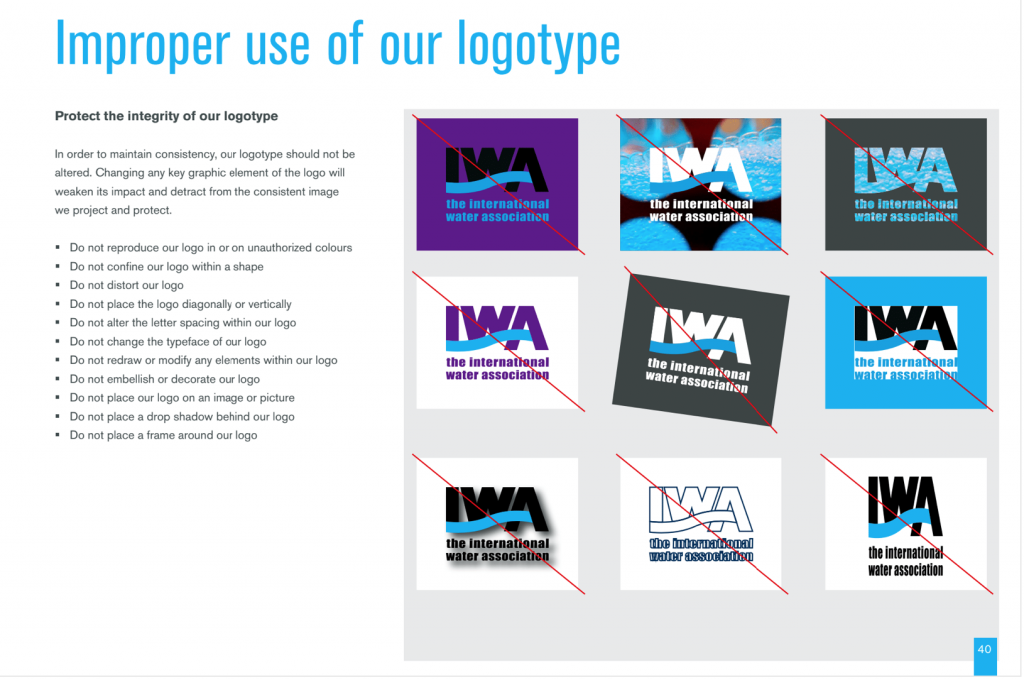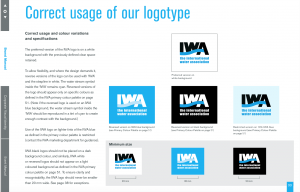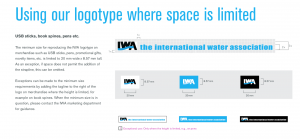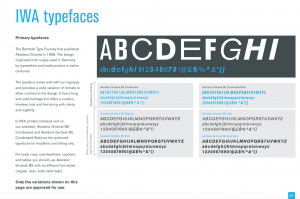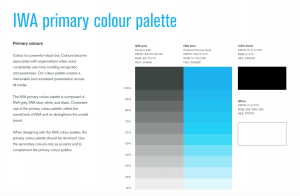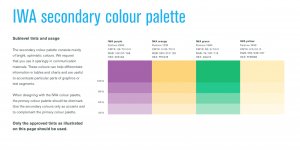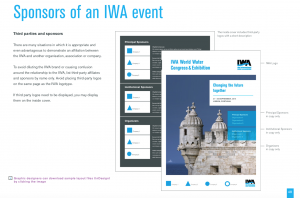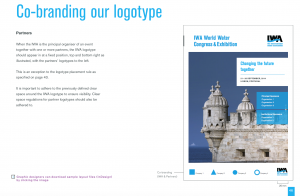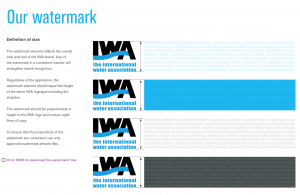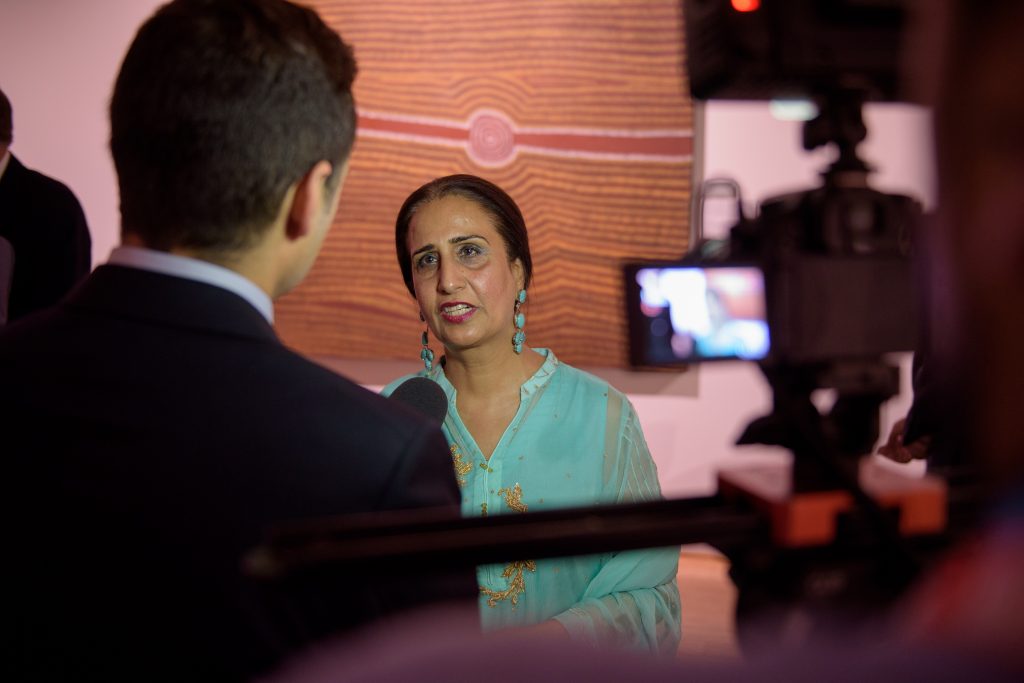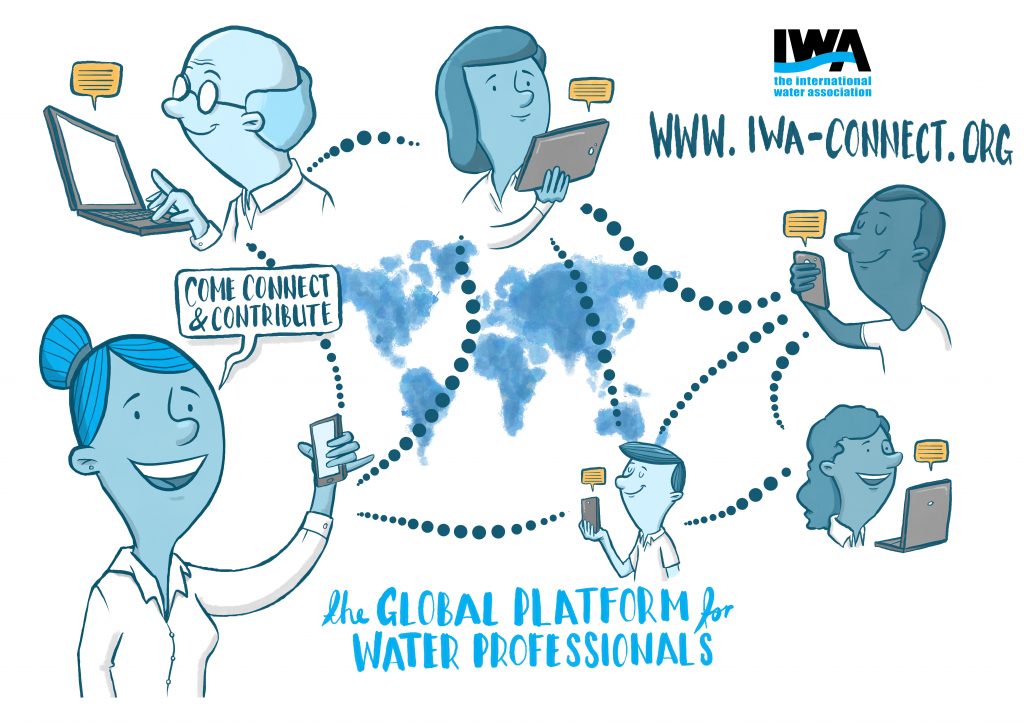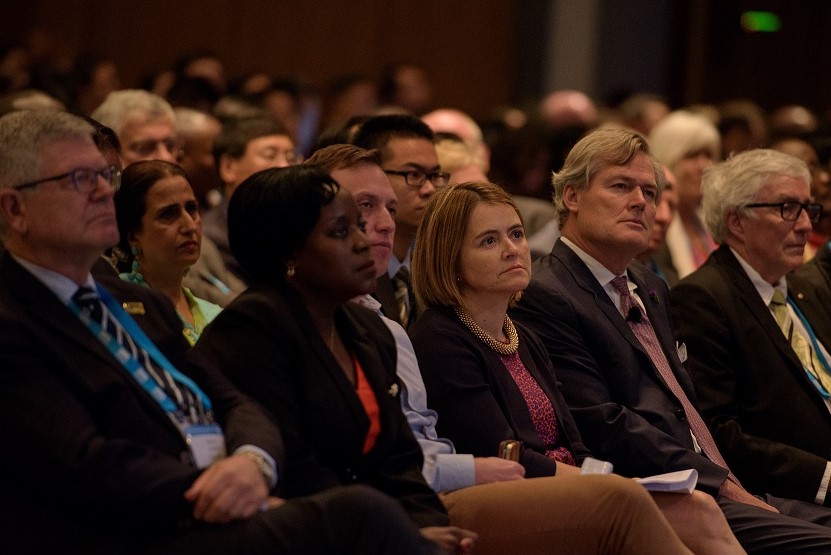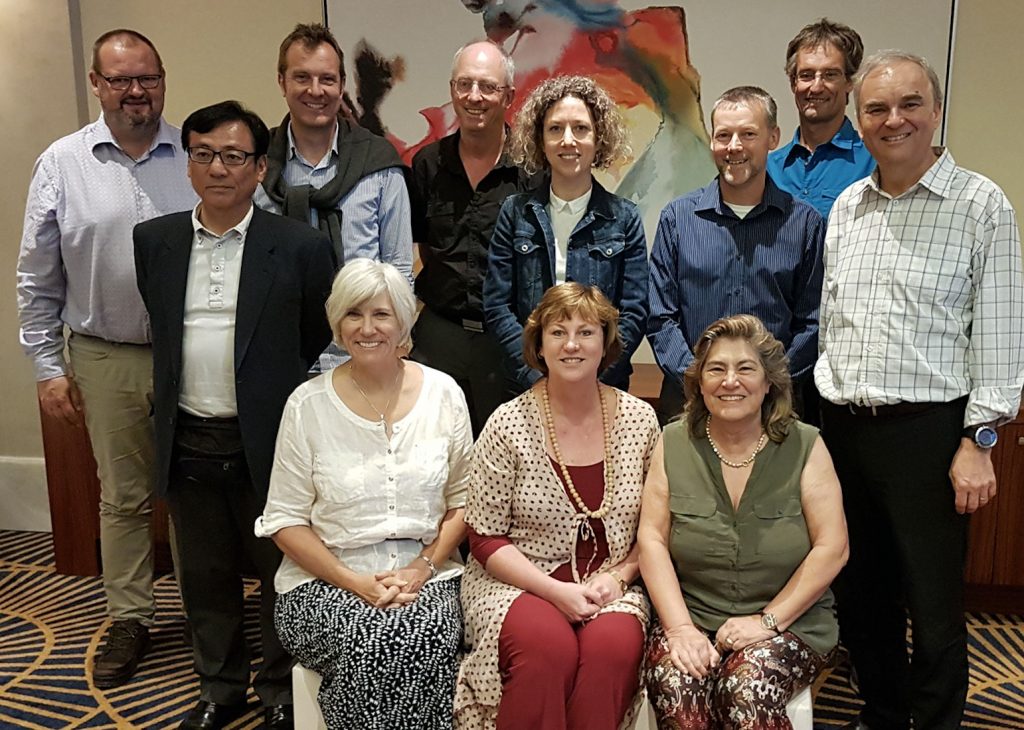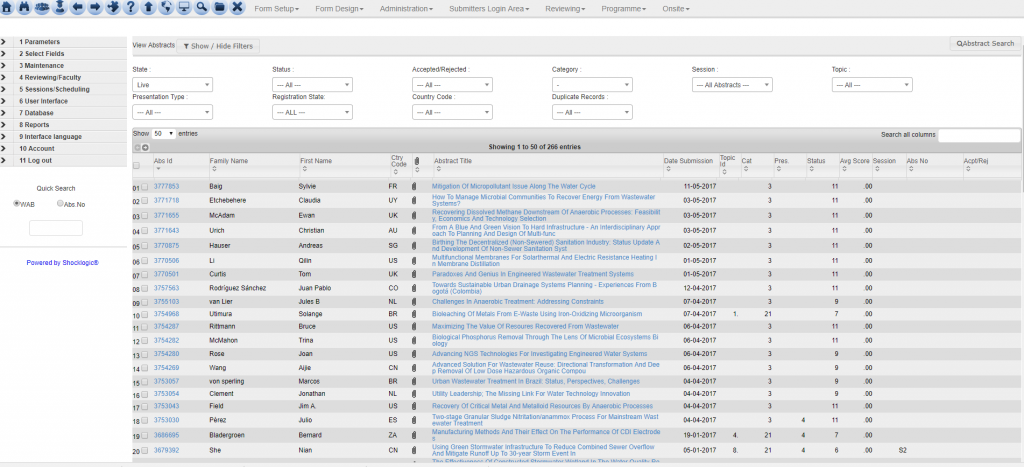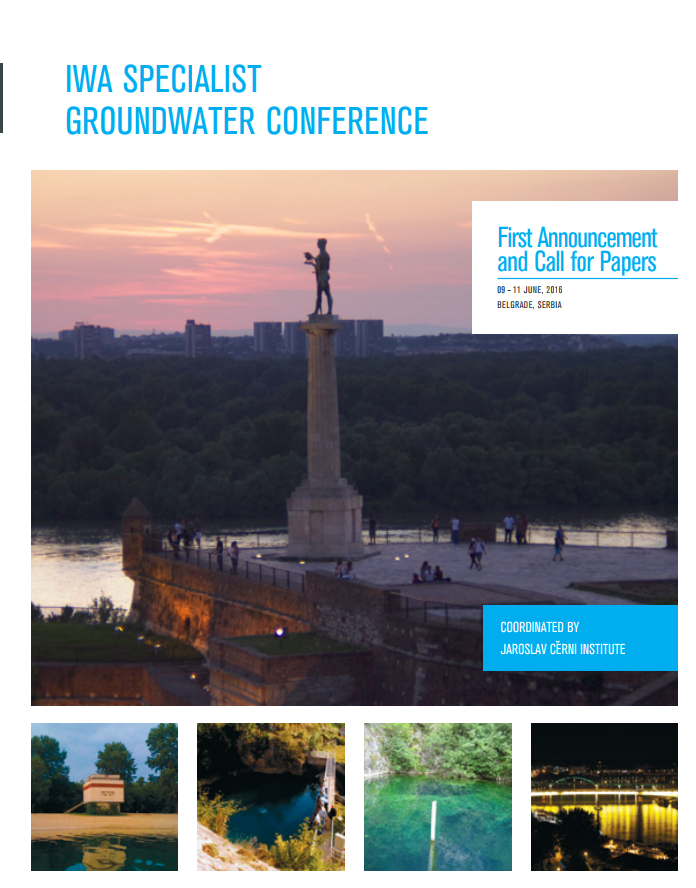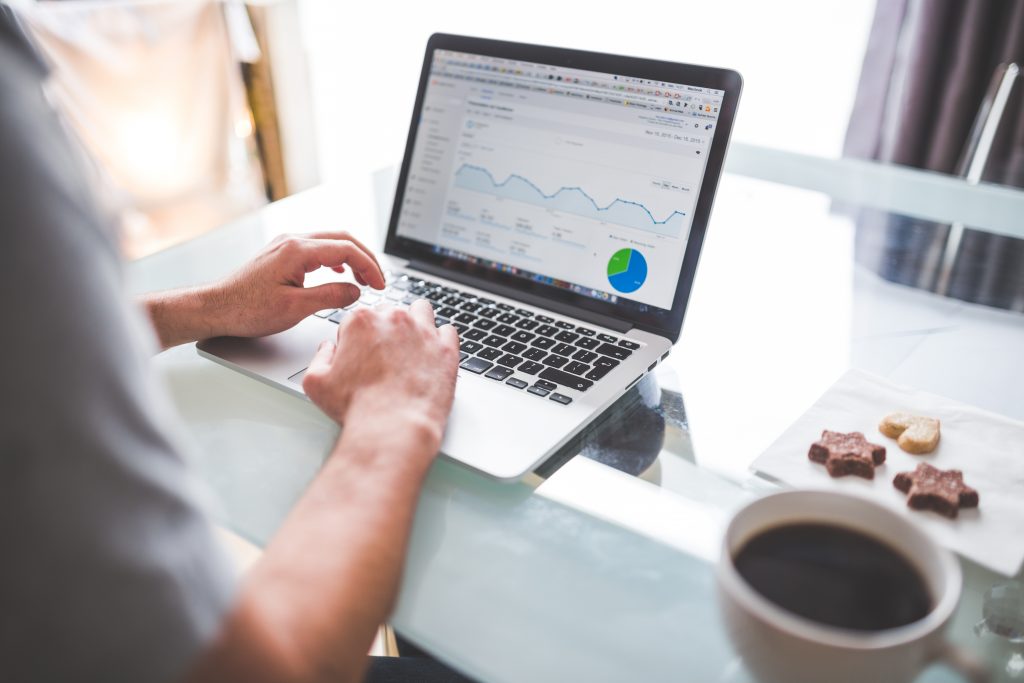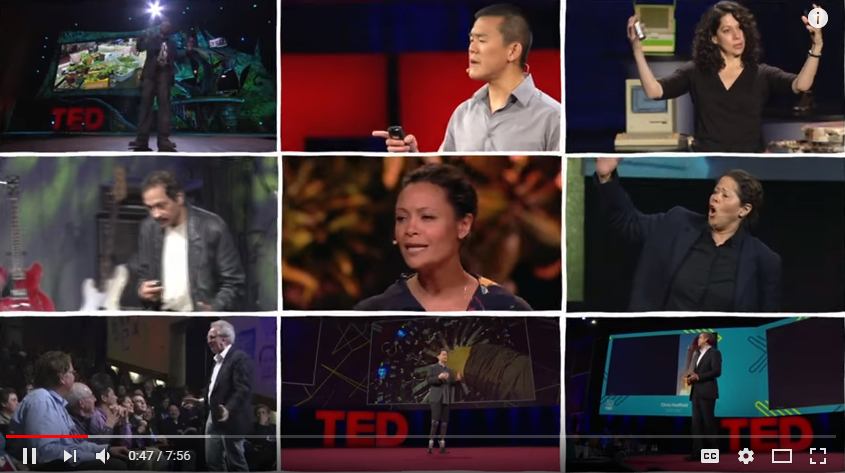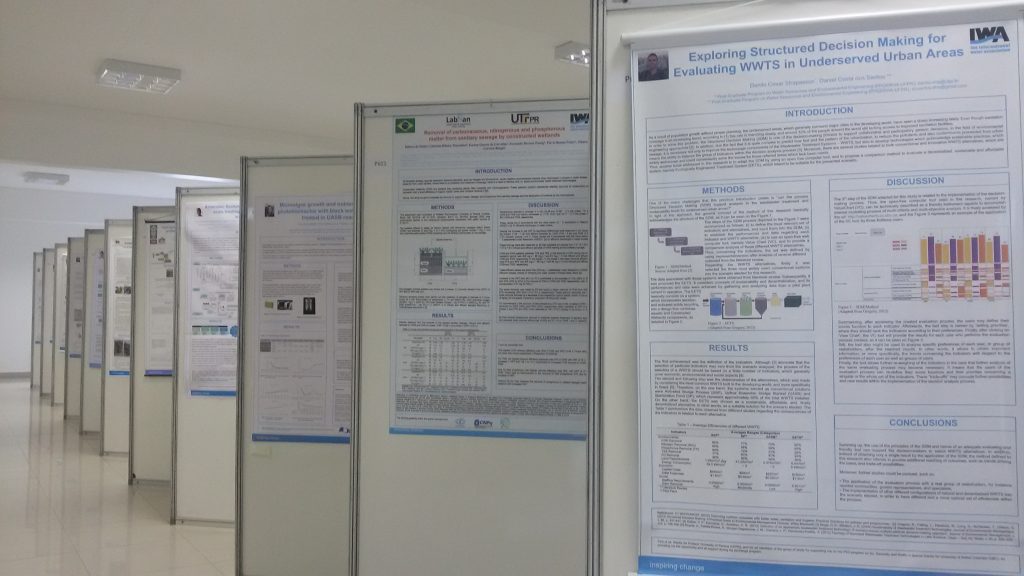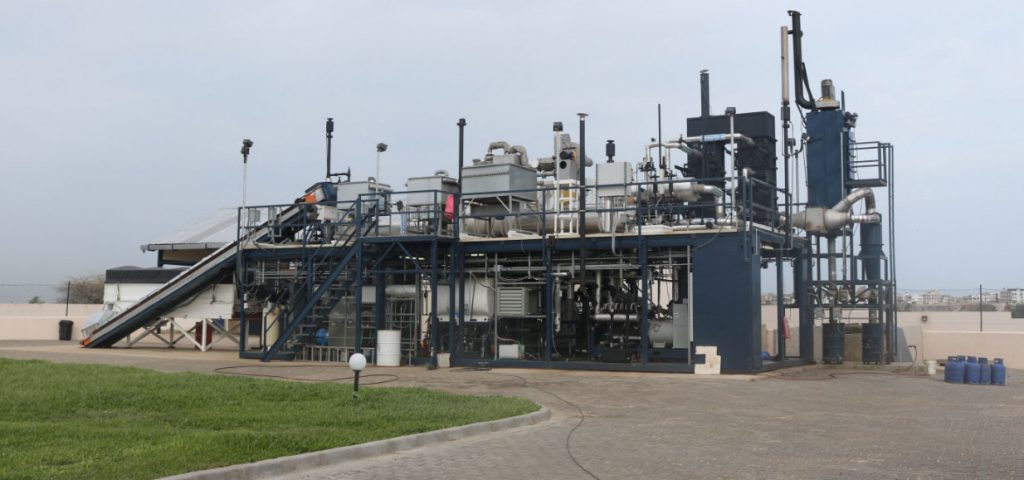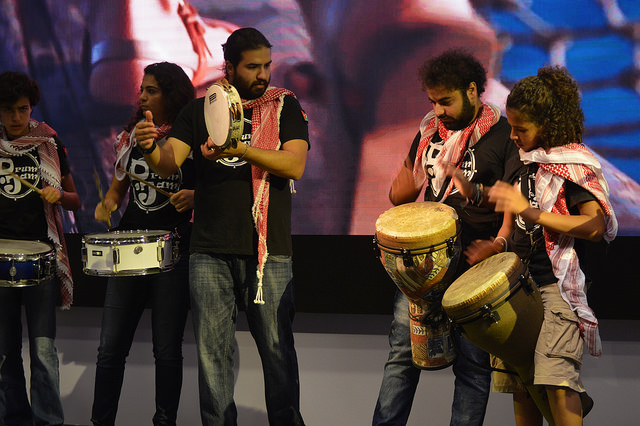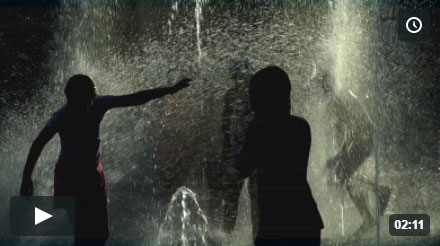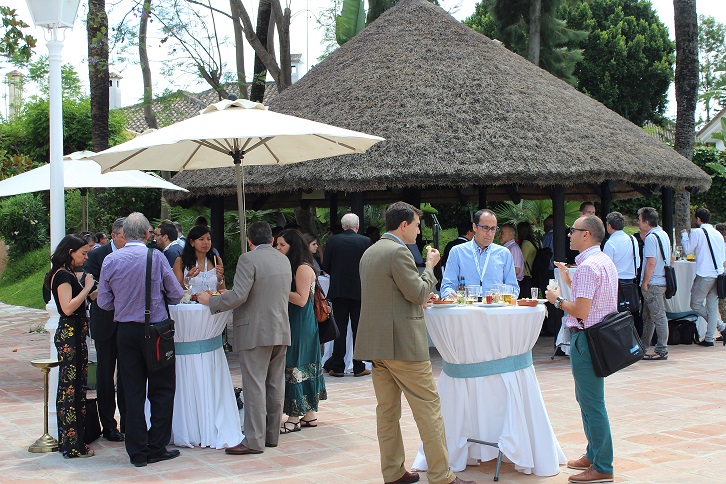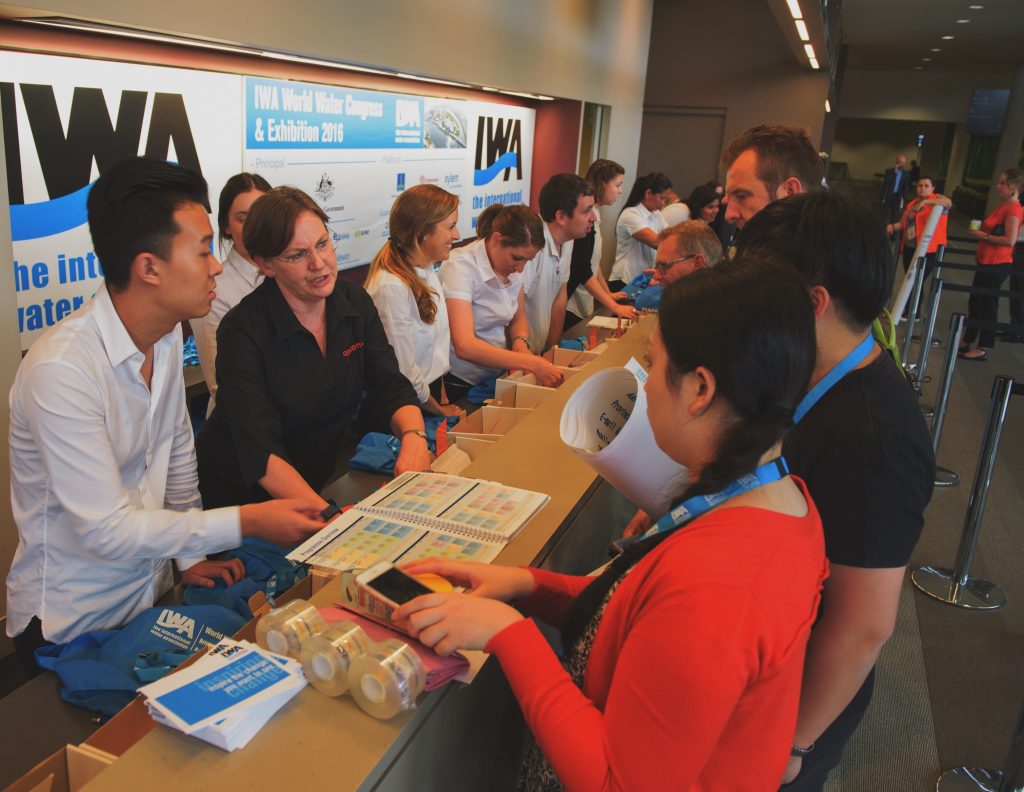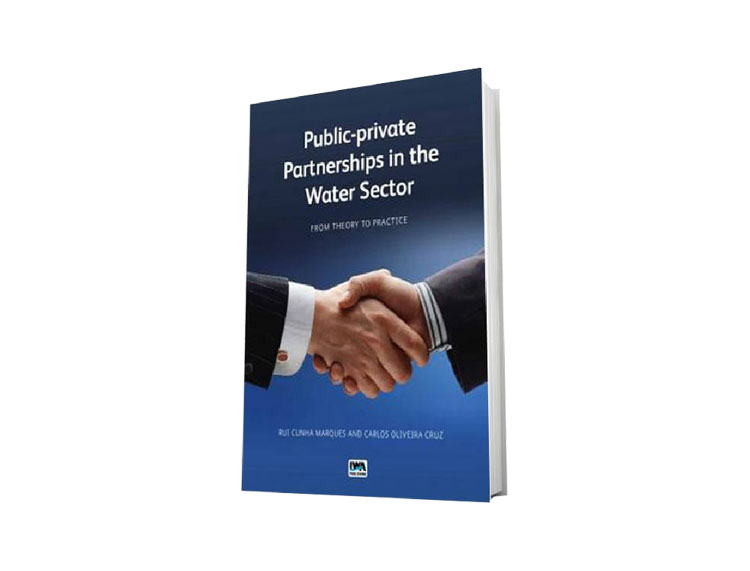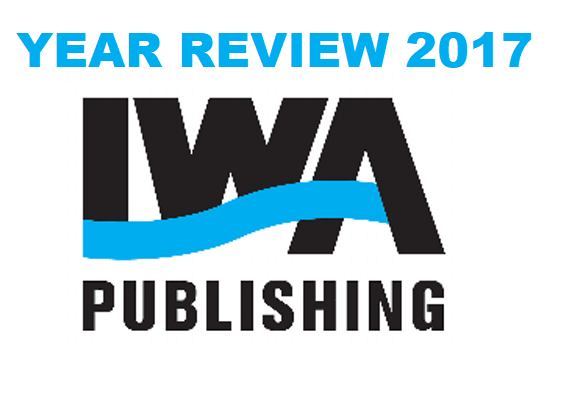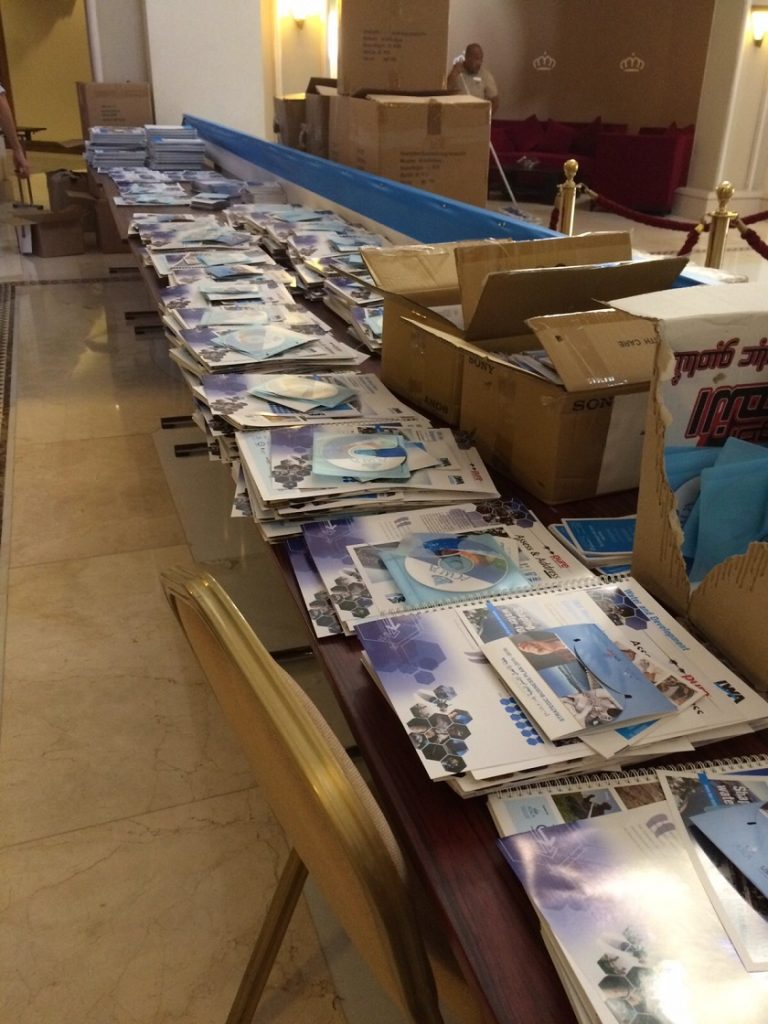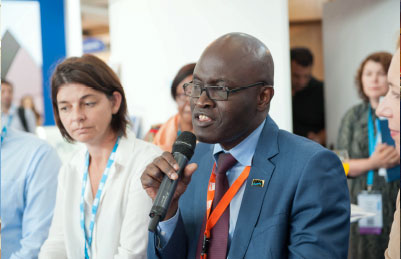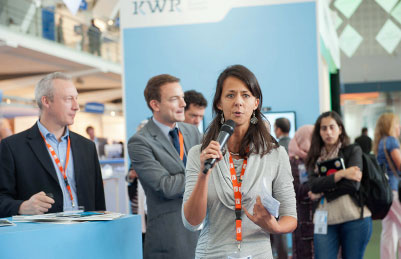TOOLS FOR EVENT ORGANISERS
Congratulations! Your event proposal has been approved by IWA.
Below you will walk through the different stages of the organisation of an IWA event. It will point out crucial issues to be addressed, it will provide examples and guidelines to help you in all the IWA event organisation process. You can also download all the documents relating to agreements and responsibilities from the IWA Secretariat and also your responsibilities towards IWA following approval.
These guidelines are made by and for our members. Your experience in event organisation is a value judgement. We welcome your recommendations on how to improve. Please feel free to contact conferences@iwahq.org and send us your feedback!
Please note that all information provided to the organiser by IWA can not be used by third parties.

General Organisation and Planning
General Organisation and Planning
First, it is essential to be clear what success looks like for a conference: inspired delegates who feel they’ve had value for money (and they can assure their employers of useful benefits too); financial viability, ideally with a surplus of income over expenditure; opportunities taken to advance environmental agendas; meeting local political and research needs for the host organisation, etc.
For an IWA conference creating a truly international experience is essential.
Checklist
- Planing: Create the event timeline and important deadlines
- Select the venue
- Set the budget
- Open the bank account
- Purchase website domain
- Consider how to handle abstract submissions.
- Set up the registration system
- Form the Local Organising Committee
- Form the Scientific Programme Committee
- Think about social events
- Consider possible technical tours
- Look for sponsors
Download resource
Article
Planning a conference includes setting up the venue, block-booking hotel rooms, providing food, and organising the presenters. Check out this article of “How to Plan a Conference“
Event Timeline
Check out our sample timeline to get an overview of how your event might look. The actions and tasks are listed for planning your event. Download example of timeline here.
Download resource
Event Budget
To help you structure your budget we have set out a list of the various items which might be included in a conference budget. Download the budget template
The budget accounts for fixed costs and cost per participant. To estimate the budget equilibrium, a larger number of participants should be considered in the cost than in the incomes. It is necessary to have some margin left for late or on-site registration.
To plan your budget properly, it is essential to carefully estimate your income and expenditure. Please make sure that you reach the break-even-point based on delegate registrations, sponsorships etc. It is also very important to estimate the number of delegates you are expecting at your conference. Please note that for IWA it is difficult to judge the financial circumstances of the country you are hosting your conference in, please therefore ensure you collect sufficient information about reference prices and local circumstances.
Download resource
Committees
Local Organising Committee (LOC)
The LOC is responsible for the general organisation of the event, including coordinating the programme and managing the logistics. The LOC also may determines the event themes and topics, defines the reviewing process and establish the International Scientific Committee.
International Scientific Committee (ISC)
The task of the ISC is the development of the Scientific Programme. It will support the abstract reviewing and may advise on topic selection. The Members of the ISC could also act as keynote lecturers or masters and session chairs.
The Members of the ISC, when possible, should be leaders in their respective fields in order to raise the visibility and profile of the event. Be aware that leading scientist often already sit on multiple similar committees, and thus their time may be limited.
For IWA’s Specialist Conferences, the ISC must include the Specialist Group Chair and/or members of the Specialist Group.
Sponsors
Sponsors may be a good source of funding. For designing conference flyers and other marketing materials, please use the IWA branding book. We also have Adobe In Design templates for designers to use for flyers, brochures and other promotional material. You can download sample sponsorship package and check out the article “Whatever you’re doing, you can get corporate sponsors” for ideas of finding sponsors!
Download resource
Article
Check out this article “Whatever you’re doing, you can get corporate sponsors” to find ideas of how to find sponsors!
Venue, Social Events
Selecting the venue
Finding the right venue for your event can take some time. Key considerations include:
- Location with parking and public transport links;
- Venue size, according to estimated delegate numbers;
- Layout and on-site amenities, including meeting rooms and space for posters;
- A/V suppliers, Wi-Fi, catering and waiting staff;
- Booking and cancellation policy;
- Insurance and security on premises.
Location
Finding the right location is a key element in planning the perfect event. Memories linger when an event seems welcoming and invites a personal connection with the attendee. Guests often leave with an overall impression of an event based largely on their perception of the atmosphere.
The other consideration when choosing a venue is the tourism element for delegates. Is the venue in an unknown town or a popular city? Is it an interesting area or region, or perhaps a good base for visiting other places of interest? Delegates are often attracted to a venue by the potential to stay on and explore the region. Many university delegates bring partners and opportunities for them may also be a consideration.
Networking opportunities remain one of the most important benefits of attending a conference. People who achieve a lot are always busy. The willingness to give up personal or professional time to respond to an enquiry or make new commitments often only follows from personal friendships developed over tea/coffee breaks, lunches and dinners. Thus a venue which keeps everyone together for the whole conference is desirable, and may be achieved at a large hotel or university campus. Some delegates will always want to be in an expensive hotel however; nearby options would then be desirable when selecting a venue.
Florianópolis, Brazil, location of the IWALET2017 Conference
Article
Check out the article “20 Questions Event Planners should ask when selecting venues” to find ideas of what else to consider when selecting the venue!
Choose the venue according to the numbers of delegates. Not too big, not too small.
“Raising the importance of poster papers helps add value for delegates (Brian D’Arcy)”
Plenty of space for poster presentations is essential; make sure to set them close to the coffee stands to facilitate networking.
Technical Tours
Pre-congress and post-congress tours should be scheduled to provide a well-balanced programme of touristic and technical highlights. It is usually important to have qualified experts guiding technical visits. Merely touristic programmes need not be offered except as a courtesy. They should not be part of the official programme. A technical visit is normally arranged on the last day of the event.
Professionally important, although often under-valued, is ‘technical tourism’ – a conference is an important opportunity to see case studies in real life rather than just on paper. It can greatly enhance understanding and insight, especially when led by well-informed, active researchers and representatives of stakeholder groups (farmers, local council/water utility staff). How did they measure this or that? What difficulties (and solutions) are encountered by the farmers/householders/councils? What about variable weather events? Technical tours also provide opportunities to learn more about the research interests and expertise of friends and hitherto unfamiliar colleagues on the tour, who add their own perceptions, questions and insights in the informal exploration of sites; another valuable networking chance. It is also a chance to see a bit of the country.
Communication, Marketing and Promotion
Communication, Marketing and Promotion
IWA will support you as far as possible in promoting your event. We will advertise your conference in our network but this alone will not be sufficient to generate adequate attendance. Our promotion will mainly reach existing IWA members; therefore it is very important for you to promote your conference in your own networks and locally around the venue.
IWA Branding
Please be vigilant with the use of our name and logo, using it only on documents and the website relating to your conference – our brand and image are important to maintain and raise our reputation and strengthen our image.
For designing conference flyers and other marketing materials, please refer to the IWA Event Manual – Branding Communications.
The IWA logo should be used on the event website and with a link to www.iwa-network.org
On the registration page, there should be a banner announcing: “Join IWA now for discounted registration” – with a link to https://iwa-connect.org/subscribe#/explore-subscriptions. Download IWA Logo and Download join IWA Logo
Download resource
Marketing objectives, positioning and materials
The first step for you is to position the conference within your organisation and especially within the market.
- Define your USP ( USP stands for your unique selling propositions). Uncover the factors that make your event unique. Why is your conference better than similar ones on the market? How are you creating additional value for your delegates and what are the reasons for them to join your conference?
- 4 P’s as marketing tools: Product, Price, Place and Promotion
Download resource
Website and social media
Define and use a URL and hashtag that can be used in the future, for example we use www.worldwatercongress.org and #WorldWaterCongress – this should allow the website and hashtag to to show first in search result particularly when used over the years.
The event website should be kept up to date, closely linked to the main IWA website providing information on all aspects of the event including the programme, exhibitors, visit schedules, event facilities, destination information, local tourism sites, hotel accommodation, registration fees and event contact details. Facilities for online registration and payment should be available. Note that the style of the website should complement the IWA Brandbook. Align your website’s design and menu structure with IWA’s main event websites: http://worldwatercongress.org. You can request the use of the same website platform and we can link IWA’s content to your site, namely blogs which IWA will publish to promote your event – please note this has costs. You will be responsible for managing your website.
On social media use @iwahq and the hashtag #iwacongress and #water. You can create a special hashtag for your event, but always also use the ones above to increase the global visibility of your event. A temporary hashtag will only talk to a narrow audience, so make sure you create a hashtag that is used for the next edition of the event.
Example of a blog written to promote the “Water Reform and Governance Online Training”
Download resource
Promotion
The organiser is responsible for the main promotion and communication of the event to its potential audience. IWA will assist with this promotion as far as possible. Our communication strategy uses different channels. Email, video, social media (LinkedIn, Twitter, Facebook), IWA website and our dedicated online platform:IWA Connect Plus.
We will advertise your conference in our network, noting forthcoming deadlines. We will start the publicity of your event as soon as we get the following information from you:
- High resolution picture of the event location (consider copyright laws and try a free stock photo)
- List of dates and brochures (call for papers, abstract submission deadline, registration starting date, early bird registration deadline).
- Conference website ( as soon as is available)
- We need your selection of 5 Specialist Groups form our list (https://iwa-network.org/specialist-groups.php) to send to them the mass emails.
One of the best promotion tools for conference organisers is writing a blog. Blogs add substantive content to a promotion and make the event more attractive. Check the general guidelines for writing a blog. Blogs should be sent to the IWA Communications department.
Video is the most engaging medium to deliver content. Create simple promotional videos about the unique content in your event. You can use pictures and text with one of the many tools available – you can also send them to the IWA video team. Hire the IWA video team and ensure your event content and participants are featured lastingly in our network.
You can use IWA Connect Plus to promote and host the website of your IWA event, reaching a 10,000-strong network of water professionals worldwide. Please note that IWA Secretariat will create the event once the Conference has been approved. Please do not create the event as it will be a duplication. If the event is not created by us, please inform us asap.
Programme
Technical Programme
The technical programme of the event is the main invitation for delegates to attend. The programme should be of high quality in order to attract as many attendees as possible. The technical programme of the conference may include different kinds of sessions: plenary speakers, technical sessions, workshops, forums and masterclasses alongside tours and social events.
The programme has to be defined by the Programme Committees (ISC and LOC) in order to provide a clearly detailed schedule, timeframe and outline of activities.
Checklist
- Programme timeline
- Define the Programme Committee
- Set the important dates: call for papers, submission deadlines, communication to authors, registration and so on.
- Include copyright and data protection clauses in the abstract submission page
- Structure your call for papers
- Abstract submission system
- Review process
- Guidelines for presenters
- Define how you are going to manage the content of the Programme
- Advance programme
- Final programme
- Technical tours
- Create the social programme; opening and closing ceremonies and gala dinner
Programme development timeline
Allow enough time to organise the conference and have all the resources you need to develop the programme. Try to get the advance programme out (web version) at least 3 months before the event – at a minimum. Try to get the final programme out (web and printed version) at least one month before the event. Download here an advance programme example. Download here a programme book example.
International Scientific Committee (ISC) or International Programme Committee (IPC)
The task of the ISC/IPC is the development of the Scientific Programme. It will support the abstract reviewing, and may advise on the selection of conference topics. The Members of the ISC/IPC can act as possible keynote lecturers, and masters and session chairs.
The Members of the ISC/IPC, where possible, should be well-known scientists, in order to increase the conference visibility. Be aware that leaders in the sector are often already members of similar committees and have limited time to contribute to the reviewing process.
Abstract submission
The abstract submission may be done manually (by email) or via an online submission system. We believe that an online submission system simplifies the abstract management tremendously and substantially reduces the time spent on it. There are plenty of event management software solutions in the market. You are free to choose the system that best suits your needs.
The IWA Secretariat uses a conference online submission and review system, AbstractLogic, which uses Shocklogic software. We have negotiated with Shocklogic providers a better price for event projects. We may set up a project in AbstractLogic for your event. The cost of the submission system project is based on the number of submissions. For each submission, the system costs GBP 2.80. (Note that this is the discounted price negotiated by IWA). The creation of the project (by IWA Staff) is not included in this cost and will not be charged. If you intend to use the software, you can download the guidelines and instructions here (download submission system manual). You can also have a look at the Quick Start guidelines created by IWA staff.
Call for papers
The call for abstract submission may include the following information: Programme Committee, programme topics, important dates of the conference, submission system (online platform link, email) and should follow the IWA Brand book guidelines.
Templates for call for papers (download Word file)
Review process
Once the papers have been collected, they have to be reviewed by the Programme Committee (ISC). The primary duty of the Programme Committee is to ensure the integrity and reliability of the research literature. People who attend the conference, and who consult its proceedings in the future, must be confident that the results reported here are honest, accurate and may be relied upon. Note that this is quite different from the duty of a commercial conference.
If the number of papers is very large (>300) a review committee may be formed in order to pre-review the papers. The Programme Committee may use the pre-review results to create the Programme.
- The allocation of papers to the reviewers can be done manually, taking into consideration that each conference’s submissions should be reviewed at least three times (by different reviewers) in order to have an objective assessment.
- We encourage you to use online reviewing systems to simplify this process. One option is the IWA conference online submission and review system, which uses the Abstract Logic Software. If you intend to use the software, you may download the guidelines and instructions. Download submissions system guidelines.
Download resource
Article
Check out this article which contains useful tips on Reviewing Conference Papers.
Guidelines and communication to presenters
- The conference secretariat should communicate with authors on a regular basis to keep them up to date on the event. (The term ‘authors’ here includes keynote speakers, technical sessions oral presenters, poster presenters, workshop organisers and all others who will be speaking or presenting at the conference.)Before the event, send clear notes to all presenters about their slot in the programme, including date, time and location. Download guidelines for presenters.
Download resource
Article
Check this video about public speaking, TED’s secrets to great public speaking-Chris Anderson! Perhaps you want to share it with your speakers.
Poster presentations
Be sure to accept offers of poster papers, including peripherally relevant ones, from paying delegates. Most delegates will want to present something, and raising the importance of poster papers helps add value for delegates. The practice of changing posters after a day or two and erecting a new set prevents casual perusal of papers over the week and bringing fellow delegates to look at one seen earlier. A poster can be more effective than a platform presentation at setting out research effectively to delegates (especially on sleepy afternoons). If close to coffee stands, a poster area is a great networking place too. (Bryan D ‘Arcy)
Conference Content Management
The conference should generate new and interesting material. Sharing this more widely after the conference has concluded is important and should be planned by the organizer in advance.
The organiser must consider beforehand how the conference material /proceedings are to be published (online software, flashdrive, IWA publishing report…) IWA Publishing may publish a post-congress report. Please visit the IWA Publishing section to read more about the different services available.
The organiser must also consider potential legacy issues e.g. intellectual property rights. Please make sure you include terms during submission as following;
Outline papers (not full papers) submitted to an IWA conference and accepted to be part of the programme are usually compiled in a preprint proceedings (paper or now more usually online) and are only available to the registered participants who pay and attend the conference. This is not considered as a publication (no ISSN no ISBN) and this is not mandatory. If a presenter does not wish the paper to be accessible for all delegates of the conference, then after notification from the author only the author name and title of the presentation will be listed. The copyrights of the online proceedings are shared by IWA and the authors. To this end, the author(s) must confer the copyright to IWA when they submit the outline version of the paper through the abstract submission process. The author(s) retain the right to use a copy of the paper for personal use, internal institutional use at the author(s)’ institution, or scholarly posting at an open web site operated by the author(s) or their institution, limited to non-commercial use. Any other use of the outline paper requires approval by IWA.
Technical Tours
Post-congress and pre-congress tours should be scheduled to provide a well-balanced programme of tourist and technical highlights. It is usually important to have qualified experts guide technical visits. Merely touristic programmes need not be offered except as a courtesy. They should not be part of the official programme. A technical visit is normally arranged on the last day of the event.
Professionally far more important, although often under-valued, is ‘technical tourism’ – a conference is an important opportunity to see case studies in reality rather than just as published papers. It can greatly enhance understanding and insight, especially when led by well-informed active researchers, and representatives of stakeholder groups (e.g. farmers, local council/water utility staff). How did they measure this or that? What difficulties (and solutions) were encountered by farmers/householders/councils? What about variable weather events? Technical tours also provide opportunities to learn more about the research interest and expertise of friends and hitherto unfamiliar colleagues on the tour, who add their own perceptions, questions and insights during the informal exploration of sites; another valuable networking chance. It is also a chance to see a bit of the country (Brian D’Arcy).
Social Programme
Emphasising the opportunity for networking is almost a cliché, but it remains one of the most important reasons for such gatherings. People who achieve a lot are always busy; an email or even a teleconference session does allow a degree of communication. But to get the willingness to give up personal or professional time afterwards to write a useful response to an enquiry or commit to a joint paper, usually only follows on from personal friendships developed over tea/coffee breaks, lunches and dinners, and drinks at a bar.
Opening ceremony
Keep opening ceremonies short. Balancing (a) local custom, practice and culture, and (b) getting directly into the technical programme, can be quite an art. Expert keynote presentations are generally preferable to political speeches but you may have to compromise on this.
Coffee breaks and lunch
Keep coffee breaks aligned in the programme so all the sessions have them at the same time. You will facilitate the networking of delegates and the catering management.
Closing ceremony
The closing ceremony is the culmination of the event. During this time delegates will be able to reflect on the conference and their shared experiences. A short closing ceremony is recommended. It should include closing remarks and greetings to organisers, sponsors, partners, presenters and delegates on their efforts.
Gala dinner
It is the social highlight of the congress. This event should take place in a big room/hall with a stage and the dinner should be accompanied by an entertaining programme reflecting the host country’s culture and heritage (music, dance or other traditional entertainment). Official items on the programme consist of a welcome by the President and the Master of Ceremonies, usually the Chair of the Local Organising Committee, and award presentation of the paper competition (for example, best poster) by the Chair of the Programme Committee. These elements should be embedded in the sequence of the banquet, preferably after the main course. The announcement of the award winners may be incorporated in the gala dinner or the closing ceremony.
Logistics and Practical Organisation
Logistics and Practical Organisation
Checklist
- Define the registration system and fees
- Consider IWA member discounts during registration
- Delegates packs, including badges, conference bags, printed programme and sponsors’ advertisements
- Catering for coffee breaks, welcome reception, gala dinner and meeting rooms
Registration
IWA processes data about individuals in the context of selling services to citizens in EU countries. The GDPR not only applies to organisations located within the EU but it will also apply to organisations located outside of the EU if they offer goods or services to, or monitor the behaviour of, EU data subjects. It applies to all companies processing and holding the personal data of data subjects residing in the European Union, regardless of the company’s location. (For more information visit: http://www.eugdpr.org/gdpr-faqs.html)
Registration fees.
Organisers must know the conference budget in order to set the registration fees. Since it is usual that different parts of the conference programme are organised by different people, it is necessary that all their inputs are coordinated and submitted a few weeks before the registration fees are defined.
There should be a significant difference between IWA and non-IWA delegates registering, which we recommend is at least €100 to provide a clear benefit to our members.
IWA also aims at lower fee for students and individuals from low income countries.
High Income Country (HIC)/ Low Income Country (LIC) Classification: IWA operates a High / Low Income Country classification for its membership and registration fees. The HIC/LIC classification is based on the country of residence of the delegate and not on the country of origin. Please consult the IWA Country Classification table to verify the status of your delegates. You can also share that list on your registration page.
Membership list
Organisers should be vigilant in checking IWA membership to ensure those paying lower fees are indeed current members. You may download the latest membership list, but should you have any doubt, please contact our membership department or log in to IWA Connect. Download IWA Membership list.
Conference organizers need to ensure they download the list weekly or else the data may be out of date.
If the event organisers encounter a delegate who claims to be a member but is not listed in the data as a member, the registration of the delegate should be put on hold and you should contact members@iwahq.org for further assistance and resolution of any outstanding membership renewal.
Note: delegates who are employees of corporate members can register at the discounted members’ rate. Note that the number of employees who can register at the discounted members’ rate must not exceed the number of Nominated Representatives the corporate is entitled to (i.e. 5 for a small corporation, 12 for a medium corporation and 32 for a large corporation.) The size of the corporate member is in column “L” and the number of representatives are in column “K”.
Download resource
Venue
Finding the location is a key element in planning the perfect event. Memories linger when an event provides a warm welcome and invites a personal connection with the attendee. Often, guests leave with an overall impression or feeling based solely their perception of the atmosphere at the event.
Networking opportunities remain one of the most important benefits of attending a conference. People who achieve a lot are always busy. The willingness to give up personal or professional time to respond to an enquiry or make new commitments often only follows from personal friendships developed over tea/coffee breaks, lunches and dinners. Thus a venue which keeps everyone together for the whole conference is desirable, and may be achieved at a large hotel or university campus. Some delegates will always want to be in an expensive hotel however; nearby options would then be desirable when selecting a venue.
Be sure to accept offers of poster papers, including peripherally relevant ones, from paying delegates. Most delegates will want to present something, and raising the importance of poster papers helps add value for delegates. The practice of changing posters after a day or two and erecting a new set prevents casual perusal of papers over the week and bringing fellow delegates to look at one seen earlier. A poster can be more effective than a platform presentation at setting out research effectively to delegates (especially on sleepy afternoons). If close to coffee stands, a poster area is a great networking place too.
The other issue in choosing a venue is the tourism element for delegates: is it an unknown town or a popular city? Is it in an interesting area or region, somewhere that is a good base for visiting places of interest? Delegates are often attracted to a venue by the potential to stay on and explore the region. Many university delegates bring partners and opportunities for them may be a consideration (Brian D’Arcy ).
Accommodation and shuttle bus arrangements
Organisers can book hotel rooms around the venue to guarantee accommodation for conference delegates. It is common to arrange discounted accommodation near the venue, and provide the list to the delegates.
If the conference venue is far from hotels or the airport, you might consider arranging shuttles for the delegates, in case public transport is not easily available in the area.
Destination, Travel and Arrival Information
To facilitate delegate travel, you should provide them with as much information as possible about their trip.
Give delegates precise information about how to get to the venue – a map is helpful, along with public transport details. Be sure to give them the exact address. Remember that most of your delegates will be in a foreign country, possibility visiting the event city for the first time. Make it as easy for them as you can. Give them key information about local customs, weather, bank/money change facilities, and anything else you think might be useful.
Make sure that information is also provided about the visa process and health recommendations (in case vaccinations are required).
IWA Publishing
IWA Publishing
IWA Publishing is a leading international supplier of water, wastewater and environmental publications, including a reputable portfolio of books, 15 renowned journals and the comprehensive digital library Water Intelligence Online.
For information about what IWA Publications can offer to your delegates, including catalogues, discount codes for our publications and details on submitting conference papers to journals, visit our events resources page .
Publication of high-quality papers from your conference is guaranteed following peer review by the long-standing relationship between IWA’s conferences and IWA Publishing’s peer-reviewed (and ISI-listed) journals Water Science and Technology and Water Science and Technology: Water Supply and their adjunct journal Water Practice and Technology.
At the event
At the event
Finally, after organizing and implementing all the fundamentals of the conference, you have to start thinking about the on-site details. This includes how attendees will navigate the conference, the general layout of each room, and the distribution of food and beverages. This is the part of planning a conference that most people associate with event planning. The best way to coordinate all of the details is to walk through your itinerary as your guests would. Picture how they will think and act at each point in the day to solve problems before they arise.
Checklist
Delegates Packages
We encourage our members to reduce the amount of waste produced by an event. IWA advocates paperless events. Mobile event apps and digital technologies (i.e. online proceedings instead of Flash-drive devices) have already massively reduced onsite printing.
- Try to assure that bags, lanyards and badges (where used) are reusable and biodegradable.
- Try to all delegates to ensure they remove any of their unwanted materials (to be reused again) when they depart from the Conference.
- Try to assure that bags, lanyards and badges (where used) are reusable and biodegradable.
Event Secretariat Office – Speakers’ Preparation Room (SPR)
A Secretariat Office should be established in an easily- accessible location at the centre of the venue. This “Congress Secretariat” deals with all issues relating to the programme of the Conference – papers, room location, contact between delegates, technical and other visits, and so on. The Secretariat should have the following facilities:
- Large sign at entrance marked ‘Event Secretariat’ or ‘Speakers’ Preparation Room’
- Sets of tables and chairs for secretariat officers
- At least one (and preferably two) PCs, one of which is equipped with an internet connection for authors to upload their presentations
- Do not forget a corner supply of soft drinks and coffee, tea and biscuits
- Additional table and PC + printer for displaying material (e.g. copies of documents and handouts)
Evaluation of the conference
After the conference is finished it is important to hold a debrief. Evaluate your success by comparing your pre-conference goals and targets with the actual outcome. Have you reached your target audience? Has your venue fulfilled your expectations? How was the quality of the speakers/presenters? Ask your delegates for their evaluations of the conference. It is important to analyse every aspect of your event to learn as much as possible and improve things for the next occasion.
If you’d like to find out the satisfaction level among participants, you could distribute a survey or evaluation form at the end of the event. Consider creating different forms according to the type of participants: chairs, speakers, delegates and so on are likely to have experienced the conference slightly differently.
IWA staff attendance at the conference
If you would like an IWA representative (President, Executive Director, Officer, etc.) at your conference to open the event, chair a session or man the IWA stand etc. then we would seek funding from you to cover the costs. As registration is free for one IWA Representative we would hope that some form of funds can be found for accommodation, travel or subsistence. As a not for profit organisation with over 30 conferences a year, it is very difficult for a representative to attend every conference, and hence any support from the conference organisers is appreciated.
Agreements between
Event organiser & IWA
Agreements between Event organiser & IWA
Congratulations! Your event proposal has been approved by IWA.
You can find here all the documents relating to agreements and responsibilities from IWA Secretariat and also your responsibilities towards IWA following approval.
Agreements
1 Guidelines notes for endorsement proposal
In order to submit your event proposal you have read our guidelines for event organisers. If you would like to review the notes, you may find the full document here. Guidelines for event endorsement
2 Budget template
As part of our marketing process, we aim to contact the delegates who attended the conference and who are not members of IWA, introducing them to the International Water Association. This process will entail sending out a standard email explaining the benefits of becoming an IWA member and inviting them to become a member of our association which includes many benefits like access to our ground-breaking magazine The Source. Please create a group for your event in IWA-Connect where you can post information about the event and delegates can discuss it with other IWA members – you can use IWA-Connect at the event, ask delegates to download it to their phones at the event – For IOS and Android.
In addition, please send us a copy of the Conference Delegate List, using the attached excel file to record the delegate information. It is important that you indicate who is a member of IWA and fill out as much information as possible. Download delegate list template
3 Membership Marketing Agreement
Your assistance in promoting IWA membership is essential in helping us to expand our network. Our conferences are our primary source for recruiting new members and we ask all conference organisers to help us grow the IWA network. We have a number of membership marketing requirements for you to use to make sure that conference delegates do not miss the opportunity to join the IWA as a member and benefit from the registration discount – please see the IWA Memberships Marketing guidelines
50% of the difference between IWA and non-IWA member fees. Download IWA Invoice
4 Payment of IWA Fee
As an IWA Event organiser, you have access to our support package. Furthermore, from IWA Headquarters we will assist you with the promotion of the event and provide help desk as much as possible. In order to continue being a good support for the organisers and to improve our services, we ask the organisers to pay IWA Fee.
Download resource
Closing documents
1 Final Event report
A final report must be submitted to IWA after the event. This will enable us to share your event outcomes as widely as possible and to help us in organising future events. Download Final report.
2 Delegates list
As part of our marketing process, we aim to contact the delegates who attended the conference and who are not members of IWA, introducing them to the International Water Association. This process will entail sending out a standard email explaining the benefits of becoming an IWA member and inviting them to become a member of our association which includes many benefits like access to our ground-breaking magazine The Source. Please create a group for your event in IWA-Connect where you can post information about the event and delegates can discuss it with other IWA members. In addition, please send us a copy of the Conference Delegate List, using the attached excel file to record the delegate information. It is important that you indicate who is a member of IWA and fill out as much information as possible. Download delegate list template.
3 IWA Fee Invoice
As an IWA Event organiser, you have access to our support package. Furthermore, from IWA Headquarters we will assist you with the promotion of the event and provide help desk as much as possible. In order to continue being a good support for the organisers and to improve our services, we ask the organisers to pay IWA Fee.
50% of the difference between IWA and non-IWA member fees. Download IWA Invoice
4 Submission System Fee Invoice
In case you have made use of the online platform submission system (Abstract Logic), please fill up the form with the amount to be invoiced from IWA. Download Invoice
